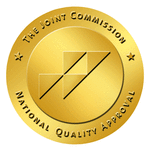By Michael Sigal, Founder – Book Your Care
Addiction recovery tip #1: Ask for help. Acknowledging that help is needed is an important part of addiction recovery and addiction treatment. But how that help is accessed may play the biggest role in success or failure. Addiction recovery tip #2: Be honest. Being honest with staff from the start will not only allow for a more personalized treatment program to be created but will set the standard for interaction moving forward.
Here, we review strategies for preventing self-abotage during addiction treatment (for either inpatient or outpatient rehab). And then we invite your questions or comments about beinh honest in addiction recovery at the end.
Lying Is An Adapted Behavior For AddictsWhen most people in the non-addicted general public think about drug addiction, they might ask themselves why or how someone becomes addicted or the physical toll it takes on the body. They may also distrust an addict who they might view as having “weak character.”
For the addict the thinking is a bit different. Their lives tend to revolve around how to get drugs, when they can use drugs and maybe how to function in everyday life. However, for both the addict and non-addict there is one constant about drug use. It’s illegal. And because of this, it’s safe to say that getting away with it and hiding their actions from others is crucial to the addict’s survival.
Case in point is a 22-year-old woman in New York who recently pleaded guilty to 24 counts of larceny, forgery, scheming to defraud and other charges. Her scam was pretending to have cancer so she could raise money for treatment. Unfortunately, her cancer treatment consisted of buying drugs to support her heroin habit.
For those with no experience with drug addiction this story is beyond shocking. How could someone stoop to that level? But for those who have been addicted, or know someone struggling with addiction, it’s a bit easier to understand.
Honesty Is A Part Of The Addiction Recovery Process
While feigning cancer to con people for drug money is an extreme example, it does speak to the dishonesty that exists around addiction. Lying to parents, friends, spouses and co-workers is the nature of the beast. But just as importantly, it’s the lying an addict does to him or herself that embeds itself deeply and can be just as tough a pattern to break as the addiction itself.
Seeking help for addiction is a major step for anyone. That act alone speaks to someone coming “clean,” acknowledging a problem exists and attempting to overcome it. But, as we know, just wanting to change isn’t enough. And for most exploring treatment they will be put to the test from the first moment they contact a treatment center or rehab with their test coming in the form of questions such as such as, “What do you use?”, “How much do you use?” and “When did you last use?’
Self-Sabotage Can Trip Up Treatment For AddictionYou’d be surprised at how many “fail” this first test by not being truthful.
Let’s take a look at some of the ways people purposefully put barriers in their own way and why being upfront and honest is such an important first step on the road to recovery.
1. Things Really Aren’t That Bad
I’m just doing this for my wife/husband/family/job, etc.”
What the staff hears is, “I haven’t fully acknowledged my addiction” or “I’m not like everyone else here.”
People don’t go to a surgeon for a mild case of poison oak. Likewise, people don’t typically end up at a rehab unless it’s necessary. For those new to treatment they may feel the need to put up a wall of defense immediately. Perhaps they’re embarrassed by their actions and seek to minimize the role they’ve played in causing damage to themselves and others. Or maybe they just don’t want to divulge the “dirty secrets” they’ve kept inside for so long.
2. I Know, I Know
Relapses do occur with some going through multiple treatment programs before achieving success. Those with prior experiences in rehab may have a better idea of what to expect and will understand the importance of being honest about their use. But others may see rehab as a system they can “game.” These are the people who may feel they’re above treatment and smarter than the staff and will say anything they think someone wants to hear. Their goal is to win whatever battle they can which provides a feeling of superiority. Unfortunately, they may win a small, insignificant battle but they usually end up losing the war.
We see this behavior in prisoners who find themselves in and out of jail. Because they know the routine, they’ll take great pride in getting over on staff for the smallest thing which makes them feel like winners. Of course, the staff member goes home at the end of the day while the prisoner goes back to his cell.
3. Look At Me
We know that sometimes people do outrageous things for attention and that includes self-sabotage. They may create their own treadmill of being in and out of treatment because they know that when they’re in rehab they will be heard. While openness is encouraged in rehab the staff is more concerned with focused openness.
The Importance Of HonestyThe first step towards recovery is an acknowledgement of the problem. The second step is full disclosure. Anything short of that will allow denial or secrecy to rule behavior and minimize the chance for recovery.
More than likely, those seeking treatment are well-practiced at keeping things to themselves and when asked to share the specifics of their habit may automatically withhold information. This is detrimental during the assessment or intake process for two reasons. The first is that without a clear and concise understanding of a patient’s current situation the staff is put at a huge disadvantage in formulating an initial recovery strategy. The second is that it feeds in to the “me against them” mentality. That’s not what rehab is about. Rehab is about “we.”
Of course, there are situations when someone is detoxing or under the influence which will make honest communication very difficult. In those cases, the staff is trained to respond accordingly.
There is another factor at play when it comes to being honest from the beginning of rehab and that’s money. There is typically a finite time that someone will enter in to treatment and every day that a patient withholds information is another day not spent on trying to effectively treat the addiction.
Some may not want to divulge everything about their addiction for a very simple reason. They’re embarrassed. The best way to overcome this is with the understanding that the person the patient is speaking to is not only trained and non-judgmental but has probably “heard it all” and won’t be shocked.
Being Honest Isn’t Easy, But It’s Worth ItWhen we go to the Doctor and are asked about symptoms and possible causes for something ailing us we generally don’t blink and respond honestly. We know that by sharing everything we can our doctor will be better equipped to help us get well. That same type of honesty needs to be exercised upon entering rehab. It needs to take place at intake, during therapy and, just as importantly, upon exiting the facility and moving forward.
Being honest, whether with ourselves or relative strangers we’re entrusting with our care, isn’t easy. But the benefits far outweigh whatever reticence we may have.
Michael Sigal is the founder and CEO of BookYourCare.com, the first and only service that provides unbiased reviews of residential treatment facilities. Longtime treatment industry professionals physically visit facilities to analyze and prepare thorough assessments in an effort to better inform those in need. Facilities cannot pay to be included in the BookYourCare directory. Additionally, BookYourCare provides the opportunity for prospective patients to bid on treatment stays to help keep high costs down.
Photo credit: thinkpublic




 RSS Feed
RSS Feed
